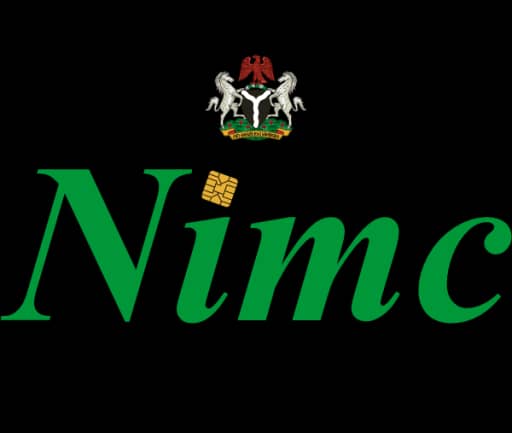By Ayodele Babalola
The importance of a robust National Identity Management System (NIMS) is globally evident as it serves as the foundation for programs and policies designed to ensure that all individuals, regardless of their background, social, or economic status, are included in social welfare opportunities and access to essential services.
Nigeria is strategically positioned as Africa’s pacesetter by its population of over 220 million, a median age of 17.9 years, and the coexistence of over 250 ethnic groups and 500 languages, making it one of the most culturally diverse nations in the world.
This diversity underscores the sensitivity required in national planning to accommodate varying cultural dynamics.
Amid the peculiarities of Nigeria’s cultural needs, the government bears the significant responsibility of creating an enabling environment for the country’s young population to drive employment opportunities, while also ensuring access to quality healthcare for the 47% of the population currently underserved, financial inclusion for the 40% of adults excluded from formal financial systems, and quality education for the 18.3 million out-of-school children.
The government has made and continues to make concerted efforts to address these pressing issues.
However, for a nation with such demographic complexity, the efficient implementation of NIMS is as eminent as it is imminent in ensuring the precession of the benefaction while fostering inclusive socioeconomic development.
Although Nigeria first conceptualised a national identity system in 1977, meaningful progress was not achieved until the establishment of the National Identity Management Commission (NIMC) in 2007 under the NIMC Act.
The NIMC has been instrumental in integrating existing identity databases, issuing National Identification Numbers (NINs), and enabling identity verification for numerous government initiatives. Between 2023 and 2024, when Engr.
Abisoye Coker-Odusote was appointed Director General/CEO of NIMC, over 115 million persons registered for the NIN to secure their unique identity.
Discounting years when registration was suspended, this reflects an average annual enrollment rate of approximately 7.69 million people.
Under her leadership, the commission expanded the national database’s capacity to 250 million, increased enrollment centres, and formed strategic partnerships to drive and incentivize enrollment.
Remarkably, within just one year of her tenure, the commission enrolled an additional 20 million individuals, demonstrating a significant acceleration in registration efforts.
Prominent among the partnerships that NIMC has forged is one with the Bank of Industry (BOI), which utilized the NIMC Verification Service (NVS) to authenticate beneficiaries of the N50 Billion Presidential Conditional Grant Scheme.
This partnership highlights the crucial role of the NIN in streamlining and ensuring transparency in the implementation of government intervention programs, thus contributing to the broader socioeconomic inclusion efforts in Nigeria.
Earlier this year, President Bola Tinubu emphasized the critical role that comprehensive National Identification Number (NIN) registration plays in the effective implementation of social welfare programs for the underprivileged.
He stressed that without full NIN coverage, it would be nearly impossible for the government to deliver targeted assistance to those who need it most.
The President underscored the importance of local authorities encouraging citizens to acquire their NINs, as it is fundamental to strategic planning, structuring interventions, and fully integrating individuals into relief schemes.
This initiative has demonstrated its power, with over 10,942 civil servants securing loans worth several billions of naira in just five days, showcasing the efficiency and effectiveness of the system.
One of the key innovations has been the integration of the NIN with bank accounts, which, coupled with robust backend support from the National Identity Management Commission (NIMC), has ensured the prompt and secure payment of these loans.
This streamlined process has replaced outdated methods, such as long queues for paper filings, which were prone to inefficiency and corruption.
This transformation has significantly fostered greater transparency and reduced the potential for fraudulent activities, helping the government distribute aid in a more reliable and accountable manner.
The Federal Government has also launched numerous social welfare programs, including direct payments to 75 million Nigerians across 50 million households.
These programs have been widely praised for their speed and efficiency, with the NIN system providing a secure and fast means of disbursement.
Focusing on households and individuals, on August 7, Wale Edun, the Minister of Finance and Coordinating Minister of the Economy, revealed that over 4.3 million households had benefitted from the N25,000 conditional cash transfer grant.
Furthermore, more than a month later, the federal government reported disbursing N24.78 billion under the National Cash Transfer Program to 991,261 poor households as part of its poverty alleviation efforts.
Despite initial doubts about the distribution process, the integration of the NIN has enhanced transparency and the ability to track the true impact of these initiatives.
The sophisticated system managed by the NIMC plays a crucial role in identifying the most vulnerable individuals, ensuring that relief efforts are accurately targeted and reach those who need them the most.
By leveraging the extensive data collected through the NIN, the system can distinguish between low-income households and other marginalized groups. This capability helps prevent the misallocation of resources and maximizes the impact of social welfare programs, ensuring that Nigeria’s relief efforts are not only more efficient but also more equitable.
The National Identification Number (NIN) is a critical enabler of Nigeria’s socioeconomic inclusion programs, providing the government with the tools needed to efficiently target and deliver essential services to vulnerable populations.
Through its integration with bank accounts and partnerships with institutions like the Bank of Industry, the NIN has streamlined processes such as loan disbursements and cash transfers, enhancing transparency and reducing inefficiencies.
By leveraging the extensive data collected through NIN registration, the government can better identify marginalized groups, optimize resource allocation, and ensure that relief efforts are effectively and equitably distributed, driving inclusive growth and sustainable development across the country.
The Technical Advisor, Media, and Communications to the DG/CEO, of the National Identity Management Commission, Ayodele Babalola, writes in from Abuja.











